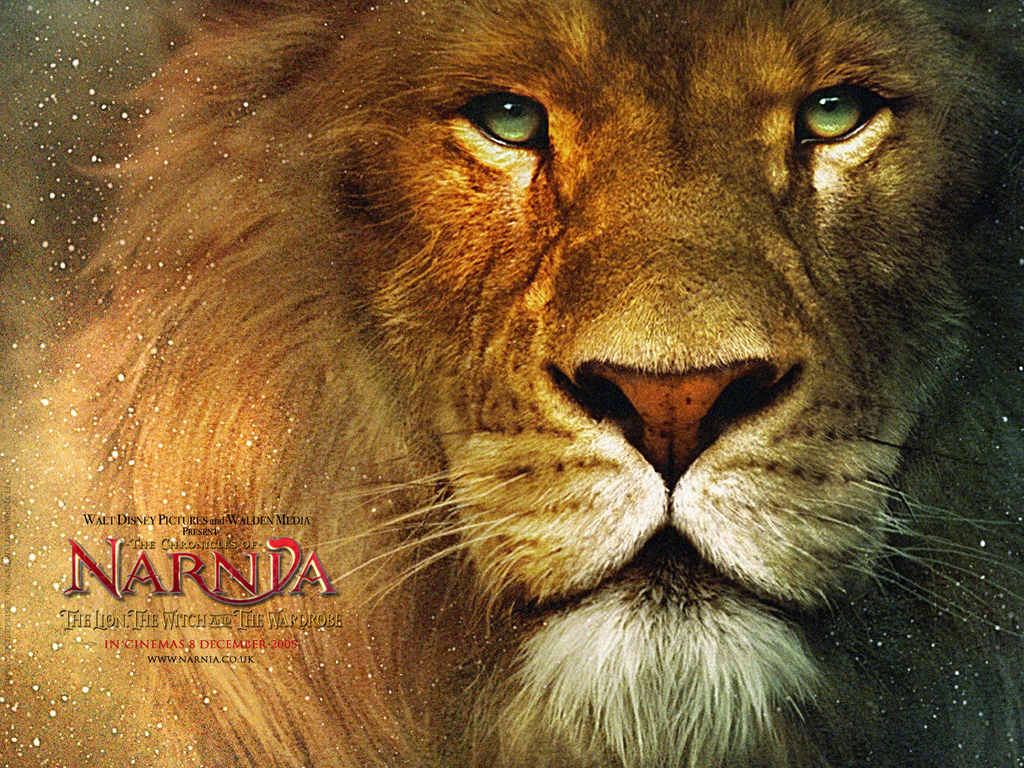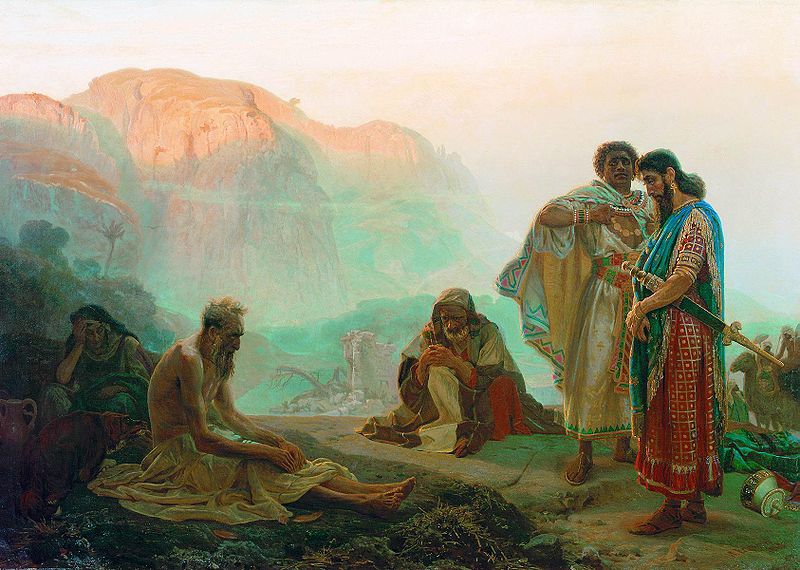After this I looked, and there in heaven a door stood open! And the first voice, which I had heard speaking to me like a trumpet, said, ‘Come up here, and I will show you what must take place after this.’ At once I was in the spirit,
and there in heaven stood a throne, with one seated on the throne! And the one seated there looks like jasper and cornelian, and around the throne is a rainbow that looks like an emerald. Around the throne are twenty-four thrones, and seated on the thrones are twenty-four elders, dressed in white robes, with golden crowns on their heads. Coming from the throne are flashes of lightning, and rumblings and peals of thunder, and in front of the throne burn seven flaming torches, which are the seven spirits of God; and in front of the throne there is something like a sea of glass, like crystal.
Around the throne, and on each side of the throne, are four living creatures, full of eyes in front and behind: the first living creature like a lion, the second living creature like an ox, the third living creature with a face like a human face, and the fourth living creature like a flying eagle. And the four living creatures, each of them with six wings, are full of eyes all around and inside. Day and night without ceasing they sing,
‘Holy, holy, holy,
the Lord God the Almighty,
who was and is and is to come.’
And whenever the living creatures give glory and honour and thanks to the one who is seated on the throne, who lives for ever and ever, the twenty-four elders fall before the one who is seated on the throne and worship the one who lives for ever and ever; they cast their crowns before the throne, singing,
‘You are worthy, our Lord and God,
to receive glory and honour and power,
for you created all things,
and by your will they existed and were created.’
Then I saw in the right hand of the one seated on the throne a scroll written on the inside and on the back, sealed
with seven seals; and I saw a mighty angel proclaiming with a loud voice, ‘Who is worthy to open the scroll and break its seals?’ And no one in heaven or on earth or under the earth was able to open the scroll or to look into it. And I began to weep bitterly because no one was found worthy to open the scroll or to look into it. Then one of the elders said to me, ‘Do not weep. See, the Lion of the tribe of Judah, the Root of David, has conquered, so that he can open the scroll and its seven seals.’
Then I saw between the throne and the four living creatures and among the elders a Lamb standing as if it had been slaughtered, having seven horns and seven eyes, which are the seven spirits of God sent out into all the earth. He went and took the scroll from the right hand of the one who was seated on the throne. When he had taken the scroll, the four living creatures and the twenty-four elders fell before the Lamb, each holding a harp and golden bowls full of incense, which are the prayers of the saints. They sing a new song:
‘You are worthy to take the scroll
and to open its seals,
for you were slaughtered and by your blood you ransomed for God
saints from
every tribe and language and people and nation;
you have made them to be a kingdom and priests serving
our God,
and they will reign on earth.’
Then I looked, and I heard the voice of many angels surrounding the throne and the living creatures and the elders; they numbered myriads of myriads and thousands of thousands, singing with full voice,
‘Worthy is the Lamb that was slaughtered
to receive power and wealth and wisdom and might
and honour and glory and blessing!’
Then I heard every creature in heaven and on earth and under the earth and in the sea, and all that is in them, singing,
‘To the one seated on the throne and to the Lamb
be blessing and honour and glory and might
for ever and ever!’
And the four living creatures said, ‘Amen!’ And the elders fell down and worshipped.
Then I saw the Lamb open one of the seven seals, and I heard one of the four living creatures call out, as with a voice of thunder, ‘Come!’
I looked, and there was a white horse! Its rider had a bow; a crown was given to him, and he came out conquering and to conquer.
When he opened the second seal, I heard the second living creature call out, ‘Come!’
And out came
another horse, bright red; its rider was permitted to take peace from the earth, so that people would slaughter one another; and he was given a great sword.
When he opened the third seal, I heard the third living creature call out, ‘Come!’
I looked, and there was a black horse! Its rider held a pair of scales in his hand, and I heard what seemed to be a voice in the midst of the four living creatures saying, ‘A quart of wheat for a day’s pay,
and three quarts of barley for a day’s pay,
but do not damage the olive oil and the wine!’
When he opened the fourth seal, I heard the voice of the fourth living creature call out, ‘Come!’
I looked and there was a pale green horse! Its rider’s name was Death, and Hades followed with him; they were given authority over a fourth of the earth, to kill with sword, famine, and pestilence, and by the wild animals of the earth.
When he opened the fifth seal, I saw under the altar the souls of those who had been slaughtered for the word of God and for the testimony they had given; they cried out with a loud voice, ‘Sovereign Lord, holy and true, how long will it be before you judge and avenge our blood on the inhabitants of the earth?’ They were each given a white robe and told to rest a little longer, until the number would be complete both of their fellow-servants
and of their brothers and sisters,
who were soon to be killed as they themselves had been killed.
When he opened the sixth seal, I looked, and there came a great earthquake; the sun became black as sackcloth, the full moon became like blood, and the stars of the sky fell to the earth as the fig tree drops its winter fruit when shaken by a gale. The sky vanished like a scroll rolling itself up, and every mountain and island was removed from its place. Then the kings of the earth and the magnates and the generals and the rich and the powerful, and everyone, slave and free, hid in the caves and among the rocks of the mountains, calling to the mountains and rocks, ‘Fall on us and hide us from the face of the one seated on the throne and from the wrath of the Lamb; for the great day of their wrath has come, and who is able to stand?’
After this I saw four angels standing at the four corners of the earth, holding back the four winds of the earth so that no wind could blow on earth or sea or against any tree. I saw another angel ascending from the rising of the sun, having the seal of the living God, and he called with a loud voice to the four angels who had been given power to damage earth and sea, saying, ‘Do not damage the earth or the sea or the trees, until we have marked the servants
of our God with a seal on their foreheads.’
And I heard the number of those who were sealed, one hundred and forty-four thousand, sealed out of every tribe of the people of Israel:
5From the tribe of Judah twelve thousand sealed,
from the tribe of Reuben twelve thousand,from the tribe of Gad twelve thousand, 6from the tribe of Asher twelve thousand,
from the tribe of Naphtali twelve thousand,from the tribe of Manasseh twelve thousand, 7from the tribe of Simeon twelve thousand,
from the tribe of Levi twelve thousand,from the tribe of Issachar twelve thousand, 8from the tribe of Zebulun twelve thousand,
from the tribe of Joseph twelve thousand,from the tribe of Benjamin twelve thousand sealed.
After this I looked, and there was a great multitude that no one could count, from every nation, from all tribes and peoples and languages, standing before the throne and before the Lamb, robed in white, with palm branches in their hands. They cried out in a loud voice, saying,
‘Salvation belongs to our God who is seated on the throne, and to the Lamb!’
And all the angels stood around the throne and around the elders and the four living creatures, and they fell on their faces before the throne and worshipped God, singing,
‘Amen! Blessing and glory and wisdom
and thanksgiving and honour
and power and might
be to our God for ever and ever! Amen.’
Then one of the elders addressed me, saying, ‘Who are these, robed in white, and where have they come from?’ I said to him, ‘Sir, you are the one that knows.’ Then he said to me, ‘These are they who have come out of the great ordeal; they have washed their robes and made them white in the blood of the Lamb.
For this reason they are before the throne of God,
and worship him day and night within his temple,
and the one who is seated on the throne will shelter them.
They will hunger no more, and thirst no more;
the sun will not strike them,
nor any scorching heat;
for the Lamb at the centre of the throne will be their shepherd,
and he will guide them to springs of the water of life,
and God will wipe away every tear from their eyes.’
- - - - - -
My Heavens!
KEY THOUGHT
Heaven is a glorious place where we’ll worship Jesus forever.
OVERVIEW
Heaven is not a place in the clouds where people go to strum harps and watch their relatives below. What will it be like? First, the Lamb of God will be at the center (5.6; 7.17). Second, as we see throughout the book of Revelation, worship will be the main activity. And the worshipping community will include people from “every nation, tribe, people and language” (7.9).
CHALLENGE
WORSHIPPING JESUS IS “A LITTLE BIT OF HEAVEN ON EARTH.”














